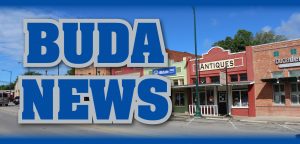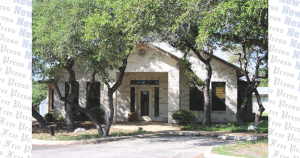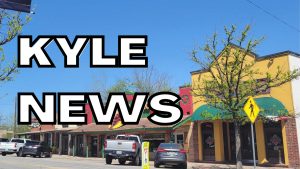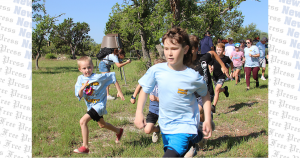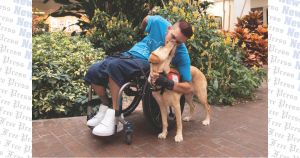SAN MARCOS — Four Hays County property owners have filed a lawsuit against the Hays County Commissioners Court regarding the almost $440 million road bond placed on the Nov. 5, 2024, election ballot.
The proposed $439,634,000 bond, titled Proposition A on the ballot, aims to bring 35 projects over the course of 30 years to the county, including 11 in Precinct 1, eight in Precinct 2, six in Precinct 3 and 10 in Precinct 4.
Les Carnes, Cathy Ramsey, Jim Camp and Gabrielle Moore have alleged that the way in which the road bond was brought about is in violation of the Texas Open Meetings Act (TOMA); thus, calling it void and invalid: “Hays County residents were deprived of both the required public notice that a bond proposal was being considered and the right to participate in determining what should be included or excluded, what the total price should be and what it will mean for our taxes,” said Carnes.
According to the lawsuit, there are several factors that the court failed to “disclose the subject matter of a proposed vote.” The first is that at the Aug. 13 commissioners court meeting, the language in which the item was listed on the agenda “neglected to disclose the purpose of the bond, the amount of the bond or the proposed tax rate increase.”
The bond election was lumped into general election business, with it titled as “Discussion and possible action to approve an order calling a bond election for November 5, 2024 to be held within Hays County, Texas; designating voter polling places; providing for early voting and election day voting; providing for performance of required administrative duties; providing for conduct of the election and for the conduct of a joint election with various political subdivisions; and providing for other matters related to such election.” If clicked on, there is an additional attachment, which includes information on the bond, such as the total price, but it does not have the proposed tax increase.
The lack of alleged failed specificity when naming items, is also included in the lawsuit: “[The court] violated the TOMA Meeting Notice requirement that agenda items must be worded more specifically when the public has a special interest in the topic under discussion. Hays County taxpayers, who pay the bill that fund the county, have a unique interest in the amount of the bond package, how it will affect their taxes and what the bonds will be spent on.”
Additionally, the lawsuit states that “all three of the relevant postings for this bond, on the July 2nd, August 6th and August 13th agendas, were placed under the ‘Miscellaneous’ section of the court’s agenda, below the ‘ROADS’ section of the court’s agenda … By placing the published notices relevant to the proposed road bond package in the ‘Miscellaneous’ section, the Hays County public was misled and not informed about the subject matter of the vote.”
Though the first discussion of the potential road bond was at the July 2 meeting, where the item was listed as a “discussion regarding the development of a 2024 Hays County Transportation Program, including a presentation of potential projects and discussion of funding strategies,” it was here that a presentation by an HNTB member discussed the previous 2016 road bond, while acknowledging the work that still needed to be done and a potential, at the time, $450 million bond. Hays County Judge Ruben Becerra concluded the item at the meeting by stating, “I don’t want anyone to feel flat-footed or sideswiped. It is our intent to bring this to the November ballot.”
Also in the lawsuit is the discussion of the time limit given for speakers. Each individual signed up for public comment is given three minutes, as determined previously by the commissioners, per item. According to the suit, it claims that the limitation “to address more than a dozen different infrastructure projects is undeniably an unreasonable restriction on public testimony.”
Because the road bond was listed under one agenda item, and not listed separately, the court is in compliance with TOMA, which states that “a governmental body may adopt reasonable rules regarding the public’s right to address the body under this section, including rules that limit the total amount of time that a member of the public may address the body on a given item.”
The lawsuit then claims that few of the projects in the bond package would make Hays County roads safer and that residents have been opposed to the project. Several residents did speak during public comment at various meetings regarding the bond proposition, some stating reasons, such as the tax increase, which would be a total of $0.02 per $100 valuation to the county rate, or environmental concerns — the lawsuit also noted this — to which the county stated that there would be environmental studies included as part of the package. The Hays Coalition for a Better Bond Special Political Action Committee is also actively campaigning against Proposition A, according to a news release.
“Unlike prior bond initiatives, this road bond was placed on the ballot without a formal public input process or citizen advisory committee. This lack of a public process reduced the opportunities for the public to be informed about the proposal for a road bond,” the lawsuit states.
The commissioners court did discuss a road bond committee after a unanimous vote was made to put the bond on the November ballot: “The commission set up for the parks bond worked for almost two years prior to that parks bond to develop those projects and to actually not only get background on them, but to do the evaluation on those projects and then move them forward. What we are talking about is we have already voted to go to the bond and so — I’ll just be very honest — asking the general public for additional feedback to make changes, statutorily, we are past that point,” commissioner Walt Smith said.
Ultimately, the lawsuit aims to stop Hays County from taking further actions to pursue the $439,634,000 million bond package, whether or not it is approved by the voters.




